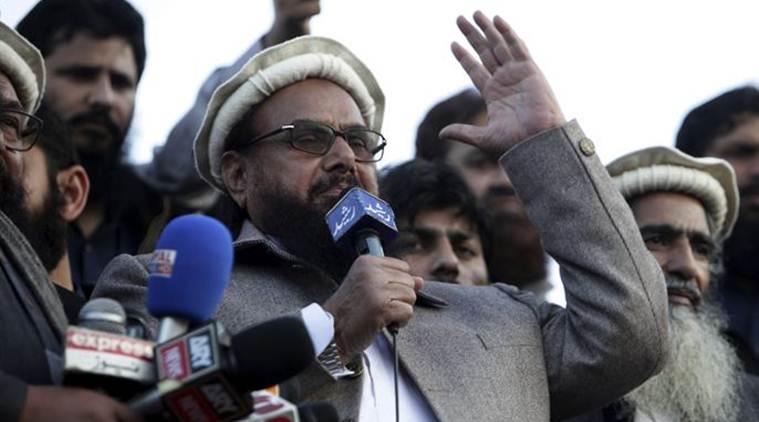A day after Pakistan lodged 23 cases on charges of terrorist financing and facilitation against Jamaat-ud-Dawa (JuD) chief and 26/11 mastermind Hafiz Saeed and a dozen members of the terror group, as well as five banned outfits masquerading as charity organisations, India on Thursday said it would not be “fooled” by Islamabad’s “cosmetic steps against terrorist groups” to “hoodwink the international community”.
In Lahore, Pakistan’s Punjab police said Saeed and the others would be arrested “very soon” since the FIRs have already been registered.

“The Counter-Terrorism Department (CTD) has booked the (13) leaders of JuD and other proscribed organisations on charges of terror financing. As the FIRs have been registered, the suspects will be arrested shortly,” police spokesperson Niyab Haider Naqvi told PTI in Lahore.
Story continues below this ad
Asked why the CTD had not arrested Saeed and the others yet, Naqvi said: “First, the FIR is registered against a suspect, and then he is arrested. Saeed and the others nominated in the FIRs will also be arrested subsequently.”
He said several members of banned organisations had been arrested on charges of terror financing, and were handed imprisonment by the anti-terrorism courts. “So these suspects will also be arrested very soon,” Naqvi said.
India, however, was not impressed by Pakistan’s moves. The Ministry of External Affairs’ official spokesperson, Raveesh Kumar, said: “Pakistan is trying to hoodwink the international community on taking action against terror groups. Let us not get fooled by cosmetic steps against terror groups by Pakistan.”
Saeed is reported to be at his residence in Lahore’s Jauhar Town.
Story continues below this ad
Pakistan’s Punjab CTD had said on Wednesday that it had registered cases in Lahore, Gujranwala and Multan for collection of funds for terror-financing through assets or properties in the names of trusts or non-profit organisations.
“Large scale investigations launched into financing matters of proscribed organisations Jamat-ud-Dawa and Lashkar-e-Taiba (LeT) in connection with the implementation of UN sanctions against these designated entities and persons as directed by NSC (National Security Committee) in its meeting of 1st January 2019, chaired by PM Imran Khan, for implementing national action plan,” the CTD said in a statement reported by local media.
CTD said that on July 1 and 2, it registered 23 cases against the leadership of JuD, LeT and FIF (Falah-i-Insaniyat Foundation) for gaining assets from terrorism financing through the following trusts and non-profit organisations: Dawat ul Irshad Trust, Muaz Bin Jabal Trust, Al-Anfaal Trust, Al Hamd Trust and Al Madina Foundation Trust.
Besides Saeed, it also named other leaders of JuD & LeT who have been booked, including his aides Abdul Rehman Makki, Malik Zafar Iqbal, Ameer Hamza, Muhammad Yahya Aziz, Muhammad Naeem, Mohsin Bilal, Abdul Raqeeb, Ahmad Daud, Muhammad Ayub, Abdullah Ubaid, Muhammad Ali and Abdul Ghaffar.
Story continues below this ad
Pakistan’s move comes days after the G-20 declaration at the Osaka summit on June 28-29 gave primacy to the Financial Action Task Force’s “essential role” and called for the effective implementation of its standards.
On June 21, at the FATF plenary session in Orlando, the US — the terror financing watchdog’s chair — had told Pakistan that it could face blacklisting at its next session in October if it did not adhere to its commitments to stop access to funds for terror groups.

 In Lahore, Pakistan’s Punjab police said Saeed and the others would be arrested “very soon” since the FIRs have already been registered. (File)
In Lahore, Pakistan’s Punjab police said Saeed and the others would be arrested “very soon” since the FIRs have already been registered. (File)






